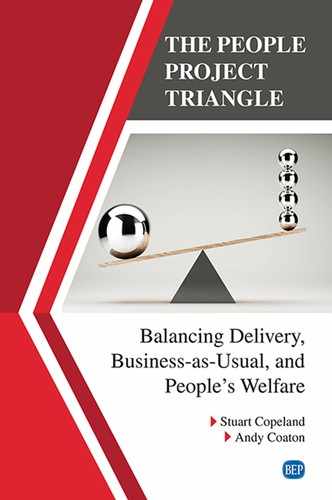Project management can be a maelstrom of activity and events. These events emanate from inside and outside the project. They relate to every level of the project like a high-level strategic partner taking a change of direction to a personal crisis of a team member. Most of the issues are detail and can be a fog, clouding the critical problems and distracting from important tasks that must be delivered.
Overall success is most likely to be achieved if the sponsor and project manager are clear what the vital deliveries are and what they depend on. They communicate this to the team, and priority goes to the right things, sacrificing what can be lost and delaying what can be delivered late.
Use the project triangle and people project triangle to understand and communicate trade-offs, but in general, business projects are judged successful if they work, even if slightly over budget, and the scope has had to be massaged.
Story: The Prototype
The following story illustrates how, once you have categorized the project as a composite project, it is possible to deploy tactics to shortcut the work for the project team.
A UK organization decided to overhaul the contract it had in place with its franchisees. The reason was to reflect new and upcoming changes in their marketplace and to the products they sold.
The organization requested one of the authors to update the standards section of the proposed contract. For reasons of resource pressure, they were behind their own schedule for publishing to their franchisees. In this case, the requirement for support was for both project support and sector expertise.
Each of the standards had a business owner who was accountable for signing off their section. The importer was at a very busy time for several reasons. The subject matter experts (SMEs) were flat out, and we figured out that to meet them, update the documents and then meet them again for signoff would have taken much longer than we had.
To minimize the time required from the SMEs, we created a prototype for the standards, using multiple existing sources of information, our operational knowledge, and understanding of the sector. This provided a draft document to review, rather than a clean sheet of paper. It is referred to as an Aunt Sally or a starter for 10. It showed that we knew what we were talking about, which in turn, built trust. This meant the SMEs were happy to brief us on the changes and be confident that their guidelines would be accurate without too much further input from them.
Using this method and prioritizing the important tasks, we were able to meet the deadline for delivery of the contractual documents to the franchisees.
